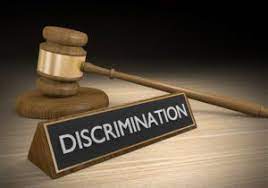A person’s gender identity is defined as the gender with which they identify, whereas their assigned or anatomical gender at birth might be different. Approximately two years ago, the United States Supreme Court heard a case involving the termination of a funeral home worker because the worker was transgender. The Supreme Court ruled that Title VII of the Civil Rights Act of 1964, which forbids workplace discrimination based on gender, also forbids discrimination based on gender identity.
As a result, this form of discrimination is now prohibited throughout the United States. Employment discrimination based on sexual orientation was also declared illegal by the Court in the same decision.
What Does Gender Identity Discrimination Mean?
The gender with which a person relates is referred to as gender identity. People may use the phrase “gender expression” to refer to somebody’s gender-related behaviors, look, choice of dressing, features, or identity, regardless of their natal sex.
Gender expression may or may not correspond to one’s gender identification. Someone who identifies as male may, for example, dress in women’s attire and style his hair in a feminine manner.
Employers are not allowed to discriminate against transgender or gender-nonconforming workers under federal law. For example, a boss may not disqualify someone who is transitioning genders, reject to promote someone who uses a different gender and name than the one assigned at birth or fire someone who begins dressing and grooming in the gender other than they were assigned at birth.
- What Are the Legal Situations of Gender Identity Discrimination?
Gender identity discrimination in the workplace is now banned countrywide, thanks to a major Supreme Court judgment in 2020. A funeral home worker who appeared as a male told her bosses in Bostock v. Clayton County, Georgia (590 U.S.) that she wished to live and work as a female. She was fired not long after.
According to the Supreme Court, discriminating against a transgender employee is a type of illegal sex discrimination under Title VII of the Civil Rights Act. The Court used identical logic to declare that sexual discrimination was equally illegal under Title VII.
Employers across the country are prohibited from discriminating against workers based on their transgender status or sexual orientation in any element of employment, including recruitment, learning, promotion, payment, discipline, and dismissal, as a result of the Court’s decision. Because harassment is considered a form of discrimination under federal law, the decision is significant.
- In What Ways Does Gender Identity Discrimination Affect the Workplace?
Transgender people, or those who have recently transitioned their gender and are facing questions about their gender, may be treated differently. Let’s look at some of the issues you might encounter.
Coworkers may tease, joke, make inappropriate comments, slurs, and threaten transgender employees regarding their gender and gender identity. In the event that you experience unwanted behavior associated with your gender identity, you should immediately tell the company about it.
- Your legal identifying documents, and any internal company documents, should be updated to reflect your new name and gender when you transition. By “common law,” you can change your name in some states, so you can start using your new name immediately. Nevertheless, getting your name officially changed in court is likely to be your best option for updating government identification documents.
- Dress and grooming codes can also be discriminatory due to gender. As long as you are allowed to follow the rules for dressing and appearance that apply to your gender identity, your employer should allow you to do so. Once you tell your employer that you are a woman, for example, they may not require you to wear a men’s uniform anymore.
- It is inappropriate to force an employee to use a restroom that does not correspond to his or her gender identity. Your company must allow you to use the restrooms that correspond to your gender identity. For these reasons, some firms designate a unisex restroom that can be used by any employee.
- Fellow employees and even bosses may mistakenly refer to you using the pronoun for the gender from which you have transitioned occasionally. This is to be expected, and honest errors are not punishable. It may, however, be considered harassment if coworkers or bosses repeatedly refer to you by the incorrect pronoun in a hostile manner.
Discrimination in the Workplace Based on Gender Identity
Talk to an experienced employment lawyer who is familiar with transgender issues if you believe you are subjected to discrimination on account of your gender identity. At Siman Law Firm in Los Angeles, a workplace lawyer can help you determine your legal rights, evaluate the strength of your claim, and decide on the best path forward.

